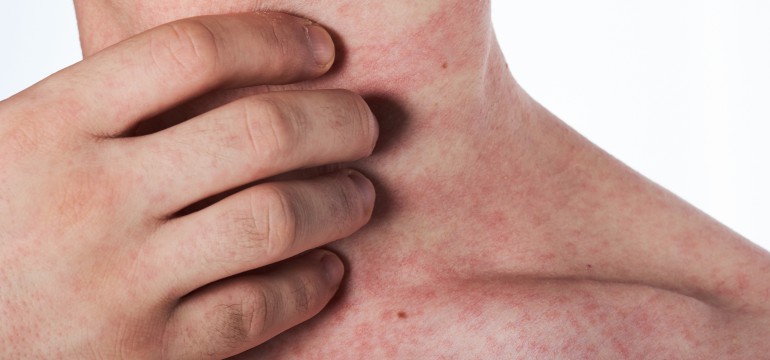
Zika Virus is one of the several diseases spread by mosquitoes; Dengue and Chikungunya being the other two of such diseases. It grows in small ponds and vessels of water, like a flower pot or the puddle. Although the Zika virus is highly dangerous, no deaths have been reported due to this virus. Zika virus gives rise to rashes.
Throwing light upon the Zika virus rash, this sort of rash comes under the maculopapular type. Normally, they are flat with little bumps in a scattered pattern. Maculopapular refers to tiny spots that have no color, are present on the surface of the skin and are usually flat. As seen in many Zika virus rash pictures, they can also be reddish in color and are erythematous.
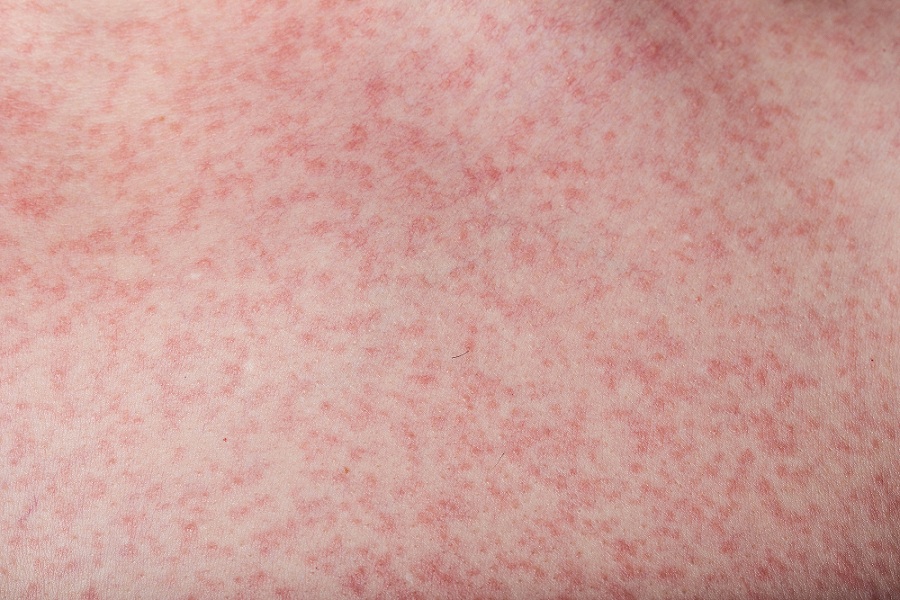
The structure of a Zika virus is similar to that of other flaviviruses. It comprises of a nucleocapsid that is roughly 25 to 30 nanometer in diameter and is covered by a lipid bilayer which has the E and M proteins. On an average, the virion is around 40 nm in diameter having surface projections that are 5-10 nm in measurement. Proteins on the surface are in an icosahedral shape symmetry.
The cause behind Zika virus rash was first discovered in Africa in the year 1947. Zika virus rash is spread by the Aedes genus of mosquitoes found not only in Africa but the Pacific Islands, the Americas, and southern Asia. The Aedes genes of mosquitoes include the Aedes aegypti mosquito, which also spreads dengue virus, yellow fever virus, and Chikungunya.
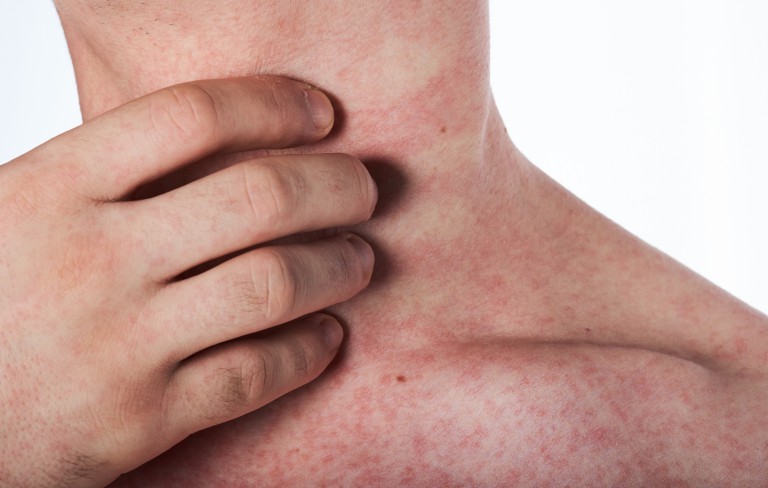
The Zika virus rash can also be spread by Aedes albopictus mosquitoes, typically known as the Asian tiger mosquito. Zika virus doesn't spread person to person. But rather like malaria, people are the cause of spreading the virus. A female mosquito when bites a person suffering from this virus can then infect another person by its bite.
Many cases of sexually transmitted Zika virus have been reported. As a result, the CDC highly recommends the use of a condom while engaging in sexual activity and the avoidance of sex during pregnancy for men that have recently visited a place with Zika virus.
Since Zika virus mosquitoes are densely and mostly found in tropical and subtropical regions, your risk of catching the virus increases in such areas. Examples of areas include multiple islands of the Pacific, states in the North, Central and South America, Puerto Rico and islands in the Western Africa. However, the outbreak of Zika virus is not limited to these regions as the mosquito that carries this virus is present around the globe.
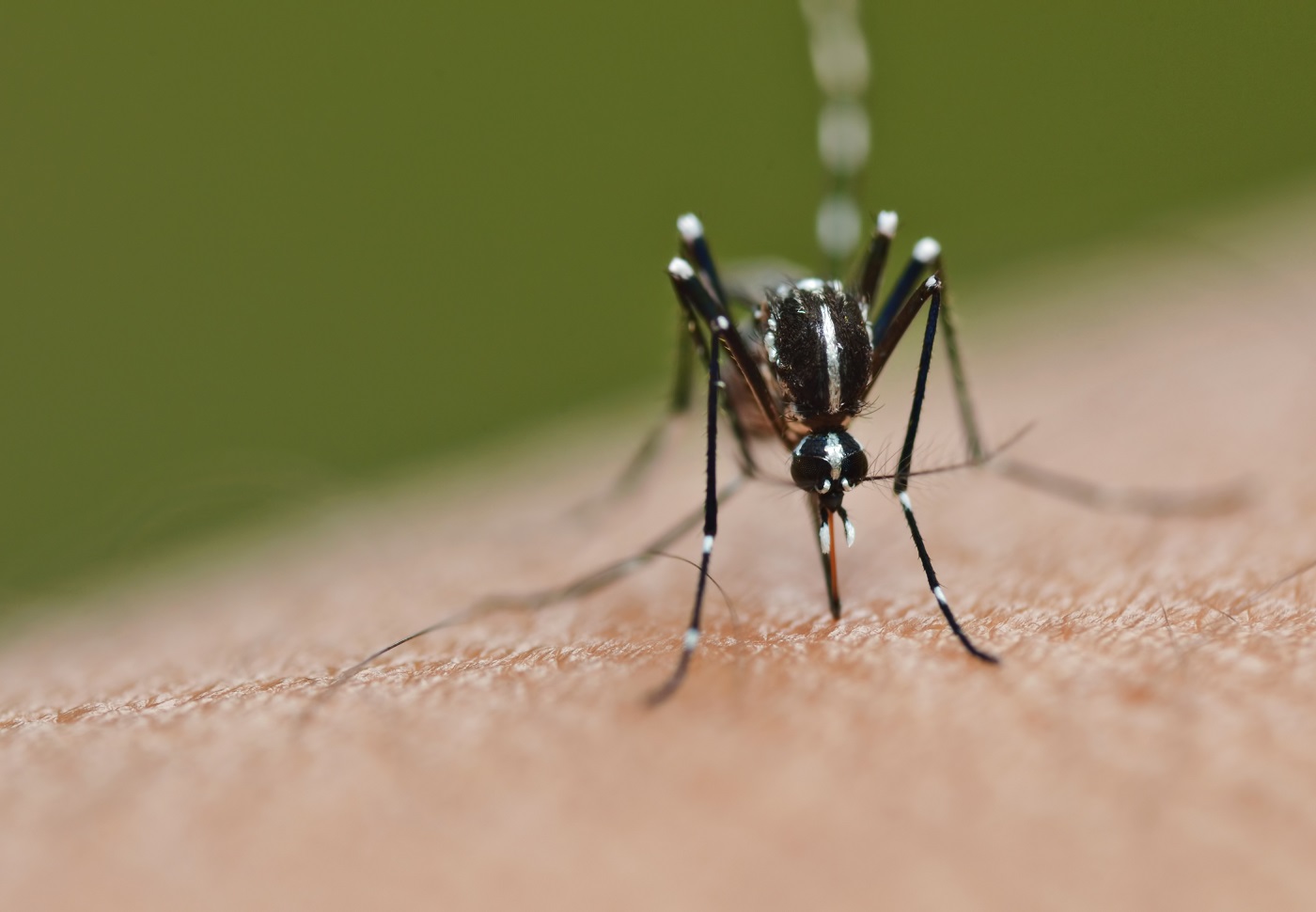
Symptoms of Zika virus are similar to other viruses like dengue and Chikungunya. These may include fever, headache, conjunctivitis, rash, myalgia, and arthralgia. Other less common Zika virus symptoms include muscle pain, headache, and rashes on the skin with red spots, conjunctivitis anorexia, diarrhea, constipation, abdominal pain, and dizziness.
Normally, these symptoms last for a week and the infected person does not gets sick or feels down enough to feel the need of getting hospitalized. The low intensity of the Zika virus symptoms is the reason why many people neglect them and do not realize that they have been infected.
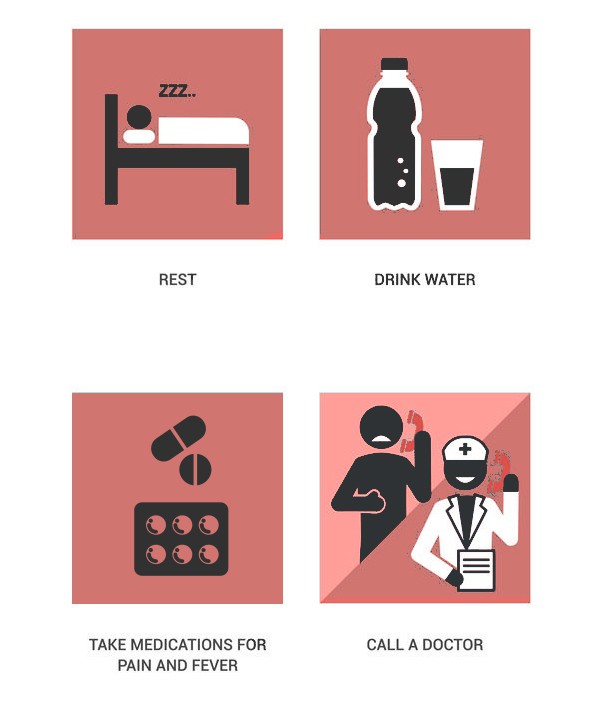
Once your doctor ensures that you have developed symptoms of Zika virus in you, he would conduct a round of blood tests to look for similar viruses such as Chikungunya or dengue. This is because once a person has been infected, he or she is likely to be protected from future infections.
Until now, there has been nothing substantial discovered for Zika virus cure. Neither there are any particular antiviral medications nor any therapies that could treat Zika virus rash. The only practices that could be implemented in the name of treatment from Zika virus include getting adequate rest and avoid strenuous physical exercise, drinking a lot of water and other fluids to stay away from dehydration.
Apart from this, treatment for Zika virus is aimed at medications such as acetaminophen (Tylenol, others) and ibuprofen (Advil, Motrin IB, others). This is because these pain killers relieve the patient from high fever and body pain.
It shall be noted that under any circumstances, aspirin or any non-steroidal anti-inflammatory drugs (NSAIDS) should not be taken until the Zika virus is completely ruled out. This is because of the potential dangers and risk of bleeding that is associated with NSAIDS.Reportedly, a man in Puerto Rico lost his life from bleeding after he got infected from Zika virus. Also, if you are taking any other medicines for another medical condition and intend to take additional medications for Zika virus, make sure to consult your general practitioner.
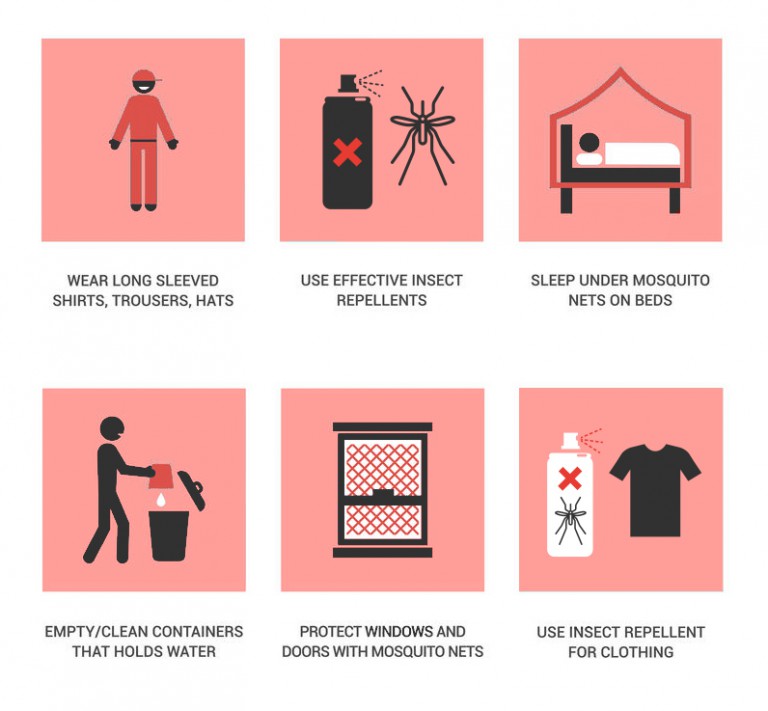
Currently, there is no vaccine designed for Zika Virus. To detect Zika, blood or tissue sample from the first week in the infection must be sent to an advanced laboratory so the virus can be detected through molecular testing. Until now there was no need for the vaccine since Zika virus was largely under the radar but now due to the sudden spread of the virus makes experts say it should be easy to make a vaccine against Zika.
Meanwhile, for prevention measure, you can do to avoid getting mosquito bites. Get plenty of rest.Drink fluids to prevent dehydration. Take medicines, such as acetaminophen or paracetamol, to relieve fever and pain.
Speaking in the context of prevention of Zika virus, conceiving mothers are the biggest risk factor with the threat of microcephaly. Let's take a look at what this is.
Microcephaly is the underdevelopment of an infant's head, brain or both that commonly happens during pregnancy but can also occur shortly after birth. Until recently, a Zika virus infection was not usually thought of as a probable cause. Microcephaly has also been recognized for problems in the formation of the skull, genomic problems, Down syndrome or a lack of oxygen to the brain. Drugs, alcohol, and exposure to some chemicals during pregnancy can also contribute to an embryo suffering from microcephaly.
Although Zika virus effects on adults are not massive, they have been connected to microcephaly in thousands of babies. Lately, the Zika virus was not related to the congenital brain condition. But in the past four months, microcephaly cases in Brazil rocketed to 3,500, and 46 babies died. For comparison, there were only 147 cases of Zika virus children altogether in 2014. Health officials dread the sudden raise may have somewhat to do with pregnant women getting infected with Zika virus, which had also been spreading in Brazil.
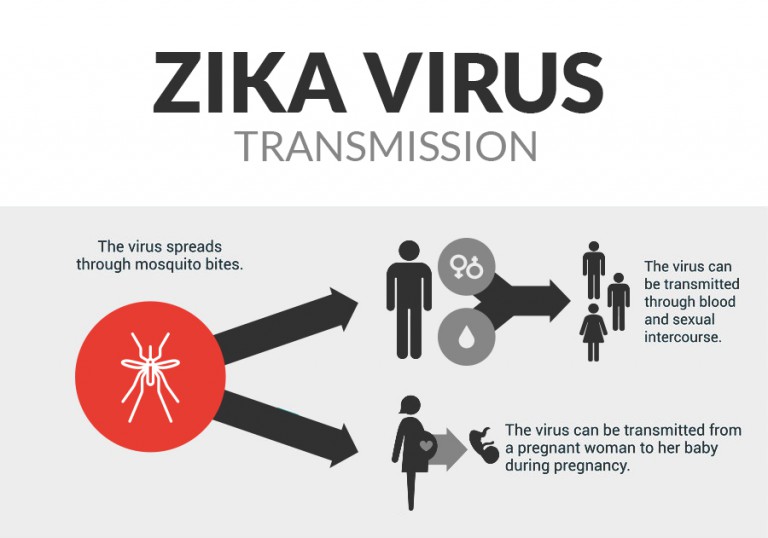
According to surveys conducted by the World Health Organization, at the end of 2015 around four million people in the world were predicted to be at the risk of getting infected by Zika virus. The main reason behind the widespread prediction was increased rate of international traveling.
Usually, the Zika virus stays in the blood of the patient till about seven to ten days. It usually infects a person if he lives in or has recently traveled to a place with the risk of Zika. This is why we emphasize important it is for the travelers to stay away from Zika virus while they are on their journey.
The only way to avoid this infection is to prevent mosquito bites by using mosquito repellents, using nets and wearing full covered attires. There is no medicine or vaccine available that prevents Zika virus infection.
Due to the possible link between Zika virus infection and congenital disabilities, pregnant women are strongly advised to be mainly cautious in avoiding mosquito bites. The Center for Disease Control USA urged pregnant women not to travel to select countries in Latin America and the Caribbean where the virus is currently spreading for the time being. These 14 destinations should be avoided - Brazil, Colombia, El Salvador, French Guiana, Guatemala, Haiti, Honduras, Martinique, Mexico, Panama, Paraguay, Puerto Rico, Suriname, and Venezuela.
Fortunately enough, the development of Zika virus vaccine is underway. As per reports published by CNN news outlet, researchers are drawing closer towards coming up with a vaccine for Zika virus. More so, initial testing phase for Zika virus vaccine conducted by The National Institute of Allergy and Infectious Diseases have shown favorable results with many volunteers across America willing to contribute to the research. Around eleven clinics will be actively taking part in the research while ninety healthy adults will be bifurcated into groups and receive varying doses of the vaccine to test its safety. A randomized control will follow up however funding for the complete research and development remains a big question.